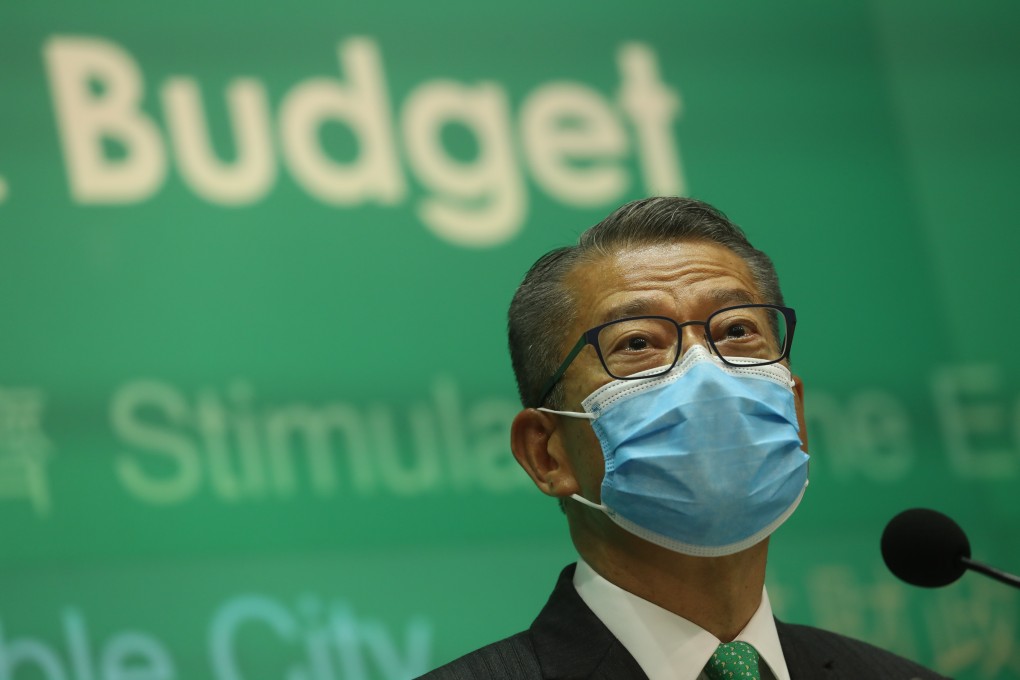Advertisement
Inside Out | Coronavirus pandemic budgets: the best relief measure would be to take the brake off the economy
- The global recession is the result of lockdowns that need not be the norm in places, such as Hong Kong, where Covid-19 is not a dire threat
- Governments are wrestling with handouts when the focus should be on mass vaccination, and testing and travel protocols to boost the economy
Reading Time:4 minutes
Why you can trust SCMP

In just over two weeks, Singapore, Hong Kong and Britain will, by the middle of this week, have unveiled budget packages that in normal times would have been catastrophic. The US Congress has passed a US$1.9 trillion economic aid package. Almost all governments worldwide are staring at similar unprecedented red arithmetic, with no clear timetable to return to the black.
Advertisement
All are wrestling with extraordinary economic contractions and record levels of unemployment. While Hong Kong and Singapore are nursing economic contractions of around 6 per cent in 2020, Britain is reporting a fall of 10 per cent, the EU over 7 per cent and the US 3.5 per cent. All are teetering on the edge of large insolvencies. Disaster is being kept at bay by massive government spending and record budget deficits.
For many, deeper disasters have been held at bay by borrowing hard against the future. Government debt sits at record levels in Japan (over 230 per cent of gross domestic product), the US (around 108 per cent) and the UK (around 85 per cent). Even Singapore, seen by many as a paragon of economic prudence, is staring at government debt above 100 per cent of GDP.
No one is talking about debt reduction any time soon. Everyone is praying that debt repayment costs, stuck close to zero since the 2008 financial crash, will stay at zero far into the future, with negligible inflationary pressure.
Staring at this apocalyptic economic landscape, one would have expected a whole lot more big-picture, strategic thinking. With the pandemic creating such fundamental economic dislocations, there is surely no more relevant time to consider options that would normally be politically too difficult.
Advertisement
There have been occasional hints of such thinking – such as the Chinese and the United States considering big infrastructure renewals, or the Biden decision to consider a US$15 minimum wage. But most of the budget discussions I have listened to have been obsessed with sticky plasters – like the debate (in Hong Kong) over whether the HK$5,000 (US$644) handout should be given in cash or digitally, in one lump sum or spread over five months, or whether corporate handouts should take the form of loans or grants, or (in Singapore and the US) whether employee furlough support should continue into the summer.

Advertisement
